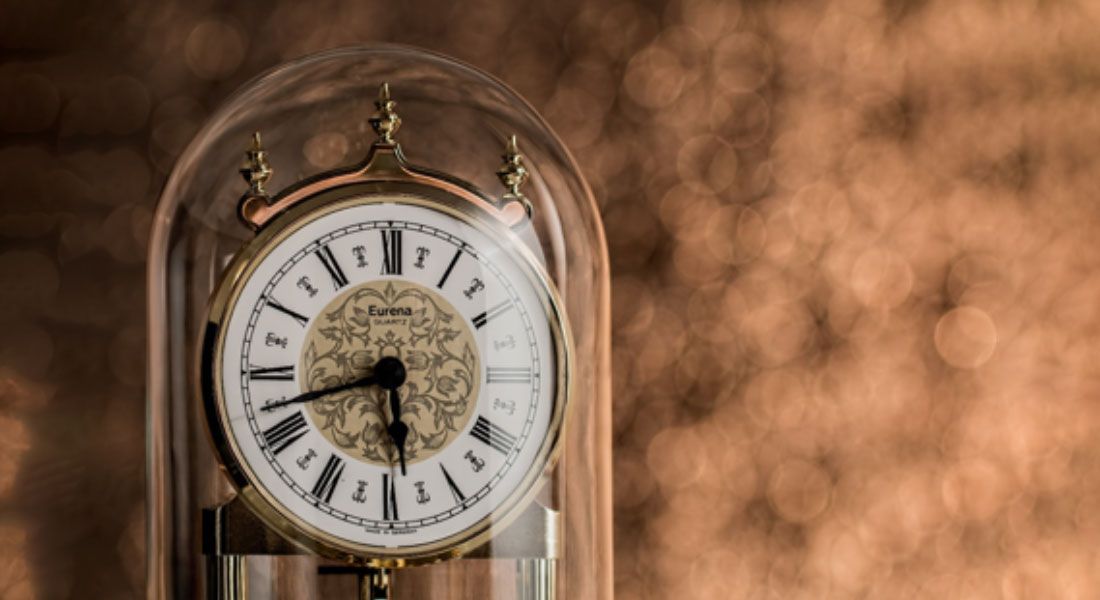The distribution of heirlooms is a leading cause of friction within the family when a loved one passes away, experts say. Having a plan inplace for the equitable disposition of personal belongings can help diminish the likelihood of disharmony during an already difficult time.
Having a comprehensive estate plan in place gives you peace of mind.
You've executed a last will and testament, and your trust will keep your assets out of probate. Your powers of attorney and advance health care directive will protect your interests should incapacity strike. Arrangements have been made to deal with your digital assets. What's more, you review your legal and planning documents regularly.
So what's left to worry about?

One issue rising to the top of the list is family members feuding over your belongings, experts say. They warn there's a tendency of family members to lose their cool in a tug of war over all sorts of items.
“If the passing of heirlooms from one generation to the next is not handled with care, it can lead to long-lasting family disagreements. It is clearly not your intention that your children not speak because one received a valued, though maybe not valuable, picture of their grandfather while the other received a set of silver that had no emotional value to them. It comes as a surprise to many of my clients when I tell them that it is more common that the passing of their ‘things' leads to family infighting than does the distribution of their money,” says Gabriel Katzner, an estate planning lawyer based in California and New York.
In her book “Who Gets Grandma's Yellow Pie Plate?” professor Marlene S. Stum, an expert in family economics and gerontology, discusses many of the issues - and conflicts - that arise among families. Stum, like Katzner, warns of the difficulties heirs face when there's no plan in place for the distribution of personal items.
“The transfer of non-titled property is an issue that impacts individuals regardless of their financial worth, heritage or cultural background. What surprises many people is that often the transfer of non-titled personal property creates more challenges among family members than the transfer of titled property. Why? Personal belongings usually have different meanings for each individual. The sentimental value or meaning attached to the personal property often may be more important than the financial or dollar value,” Stum says.
When passing along certain heirlooms, some families observe traditions. The first daughter to marry, for example, gets grandma's wedding ring as it passes from one generation to the next. The oldest son has dibs on the grandfather clock, and so on. Perhaps they've had family discussions and reached a mutual understanding on how personal items will be distributed.
Other families might be inclined to follow another tradition of a free-for-all in which no plans are made ahead of time. Unless the executor of grandma's estate changes the locks right away, the process of distributing family keepsakes can resemble an MMA cage match as relatives become rivals and skirmish over prized treasures and trinkets.
“Research has shown that disputes over inheritance and property distribution are one of the major reasons for adult siblings to break off relationships with one another,” Stum says. So, a key goal of the whole process of distributing heirlooms, regardless how it is carried out, is to maintain harmony within the family. Achieving that goal often falls on the shoulders of the estate's executor.

“The person in charge shouldn't allow people to start helping themselves,” Bonnie McPherson, who runs an estate sales company, told the StarTribune.com for an article about dividing up heirlooms.
For most families, it's unlikely their heirlooms will be revered with the same recent glory as those of the descendants of Alexander Hamilton and have their own museum exhibit in Philadelphia. Some would-be heirs may consider the antiques, china sets and endless knickknacks as just clutter that conflicts with millennial modernism. Whatever the case, the future of your illiquid assets should be part of your comprehensive planning.
Katzner and Stum suggest some common-sense estate planning steps to prevent infighting and keep the peace during an already challenging time.
-
Pass on heirlooms before passing away.
Katzner says the benefactor gains satisfaction during his lifetime and forms a lifelong bond with the recipients. “By gifting heirlooms during life, you can have a conversation with the recipients as to why you want them to have a specific heirloom and what you hope they will do one day with it.” Stum says that when people make distribution decisions ahead of time, it's a big help during difficult times. “The process becomes more challenging and sensitive if family members are left to make the decisions when they are grieving over the loss of a relative, selling the home in which they grew up and/or facing the increasing dependence of an older adult.” You can list specific personal effects and mementos and their intended recipients in estate planning documents - your letter of instruction, minutes of trust and directives to a successor trustee.
-
Specify ahead of time who gets what - in writing.
If you fail to make arrangements in your will or trust, your executor will have to serve as the referee to make sure the heirlooms are distributed equitably and to the closest relatives according to the rules of intestacy. “You will want to create a list. On this list will go a schedule of the various family heirlooms and next to each heirloom, you will indicate to whom you wish it to be given,” Katzner says. Stum also recommends preplanning. “Distribution methods that require planning prior to death include: making a gift, labeling items, making a will and preparing a list of personal property specifying the intended recipient.”
-
Potential heirs can ask, but it's a sensitive subject.
Stum concedes it's a tough subject to broach and can create anxiety for all parties involved. She suggests looking for natural opportunities to initiate a discussion. “You can provide reassurances by saying something like, "Chances are you will be living here for a long time, but if you would have to move or if you are unable to make those decisions in the future, I would like to know what you want so your wishes can be carried out." The best outcomes tend to occur when choices are clearly communicated and considered by the family as a group, she says.
-
Develop a standard of fairness.
Stum suggests that fair does not always mean equal. “Some family members consider the distribution of belongings to be fair when everyone has received an equal amount. … When dealing with non-titled property, challenges quickly arise about whether equal means an equal number of items, equal dollar value, or equal in terms of emotional value. What makes dividing equally even more difficult is that the sentimental meaning or value of items will differ for each individual.”
-
How about an auction or lottery?
Katzner says that in his experience, a successful distribution method is to auction heirlooms within the family. For example, each family member can be given a certain number of credits. “As items come up for auction, each person may bid their available credits on the item. … This process allows the heirlooms most important to each person to end up with that person.” A lottery process is another way to divvy up items with an air of fairness, Stum says. “Some individuals may feel the process used to decide the way in which transfers are done is more important than who actually gets the items.”
-
What if I can't decide? Try a round-robin approach.
If you're not sure who should get what or would prefer to avoid making those decisions, you can leave instructions in your will or trust that your beneficiaries do the deciding. An example of a popular distribution option is to allow one's heirs, typically the surviving adult children, into the house one at a time. An individual selects an item, it's logged by the executor or successor trustee, and the next person repeats the process. Heirs then have an equal opportunity to choose items they desire, whether based on value, sentimentality or other any other reason. Once beneficiaries have determined the items they want, the remainder can be given to charity, sold in an estate sale or discarded. Your instructions can establish an order of selection, time limits and other procedures that could help minimize disputes.
-
Just sell everything.
In some situations, family dysfunction simply may be unavoidable. Perhaps you lack confidence that your executor or successor trustee can dispose of your personal belongings without a civil war erupting. You may find that the best way to maintain harmony is to have your personal property sold via estate sale, public auction, eBay, flea market, second-hand store or other means. You can decide the method or leave it up to your representative. The financial proceeds then can revert to the estate. That way, your heirs wind up with cash instead of curios, consternation and contempt.



